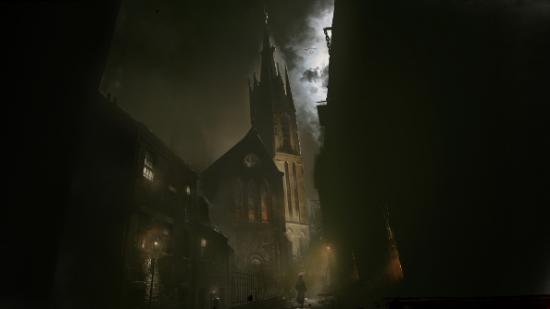It’s 1918 and London, like much of the world, is in the grip of a pandemic, the Spanish Flu. That equates to a great deal of work for surgeon Jonathan Reid, protagonist of Dontnod’s Vampyr and a man searching for the origins of the plague. He’s a healer, an investigator, a researcher and, oh yeah, a blood-sucking vampire.
For more undead roleplaying, why not check out our list of the best RPGs on PC?
This leaves the good doctor in a bit of a bind, this dual identity. Helping people is his calling, but he has a biological imperative to feed on them. It’s an RPG where traditional progress like leveling up and unlocking new skills is inextricably linked to murdering humans and gulping down their blood.
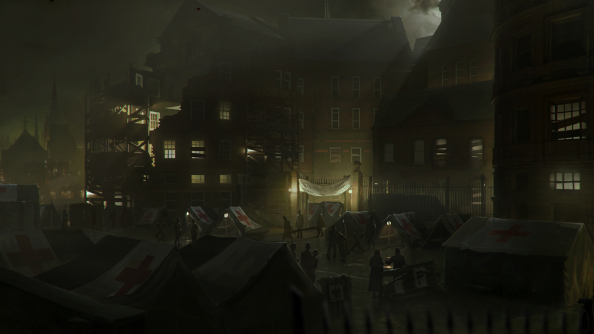
When Reid chooses to kill, the death of the NPC has a ripple effect, changing London’s ecosystem. Every murder leaves the city altered and there’s no avoiding the consequences.
“One way or the other, a crime committed by the player will be revealed sooner or later,” explains Stéphane Beauverger, Vampyr’s narrative director. “There is no murder without consequences for the hero. The world will and must react to player choices.”
Reid can be a vigilante, feeding on the guilty and cleaning up the foggy streets; a pragmatist, killing innocent and guilty alike for the greater good; or just a murderer, feeding on anyone and everyone. Regardless of what path players take him down, it’s all a bit sinister and unpleasant. When he mesmerises his victims and gently guides them to a dark alley or quiet spot, where he’ll open up their neck and have a long drink, it’s unnerving no matter the justification.
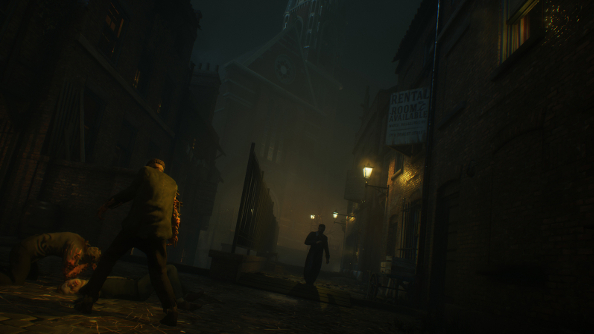
Newspapers report on the murders committed by Reid, and friends or family might make dramatic changes in their lives as a result of the their loss. “We have tried to create as many different effects as possible,” says Beauverger. “It can go from a selfish character who decides to be generous toward the poor after the death of his last friend… to a vengeful NPC who will join the vampire hunters to avenge the killing of his family by the hero.”
Ultimately, entire districts can fall to chaos. “[I]f he takes too many lives, too quickly, an entire district may collapse,” Beauverger says, “thus forcing the hero to permanently lose any advantage, deal or relationship he may have created with all the citizens from this part of town.”
The reason why Reid has to feed – why players will struggle if they don’t kill NPCs – is the target on his back. He has vampire hunters to contend with, and he’s not the only undead beastie in London.
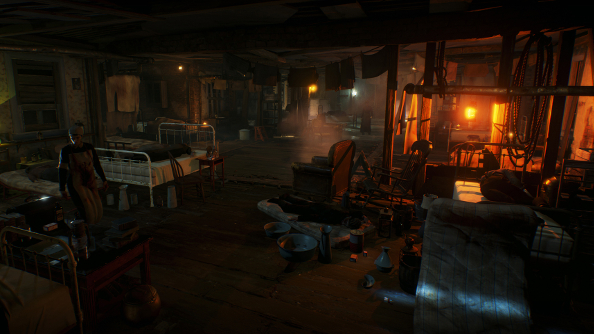
“All vampires were humans once – well, let’s say most of them – even if it was a long time ago,” notes Beauverger. “As fallen humans, they have many ways to deal with their new nature. Some are merciless killers, some try to restrain themselves from becoming heartless monsters. Some even may be more complex creatures, who try to do some good but are also compelled to kill to survive. Who knows? It is fair to say that, because of their need for human blood, vampires always have a very dark side, but that does not mean that they all are killers without conscience.”
With monster slayers and at least some monsters trying to put him back in the ground, he can’t be weak and bloodless. Blood means experience, experience means more fancy vampire magic. Only the shadow branch of Reid’s abilities have been shown off, which allows him to “exploit the mysteries of mist and shadows to strike at prey.” It makes him a magical assassin, essentially.
Aside from his vampire tricks, he can also depend on customisable weapons in a fight. Modules can be crafted that make weapons more effective against specific types of enemies. Weapon crafting, while almost ubiquitous in modern RPGs, seems like a bit of a strange addition to an RPG where one plays a surgeon, even a vampire surgeon. According to Beauverger, however, the crafting system is not without a narrative justification.
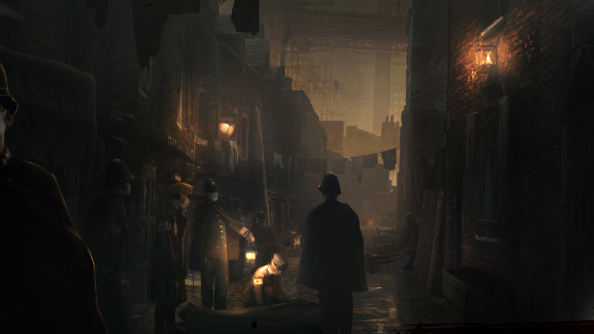
“It is important to remember that at this time [1918], to be a surgeon also meant to be something of an engineer, who had to conceive new medical equipment able to serve this new concept of modern surgery – not only cutting what is destroyed, but trying to repair a body from within.
“During the war, [Reid] invented a new blood transfusion technique that saved many lives, thus it is logical for him to create and design some appropriate equipment when facing new supernatural creatures. This is exactly what the vampire hunters have done for centuries: adapt and create new weapons able to destroy creatures of darkness… And in this matter, it would be wiser for the hero to learn from them.”
Despite all of the blood-sucking and vampire-slaying, it’s Reid’s role as a doctor that actually sounds the most intriguing. It’s the source of his internal conflict, what makes him more than a chap who saunters around London eating people, and it also offers some respite from the RPG tradition of killing things being one of the few ways to save the day.
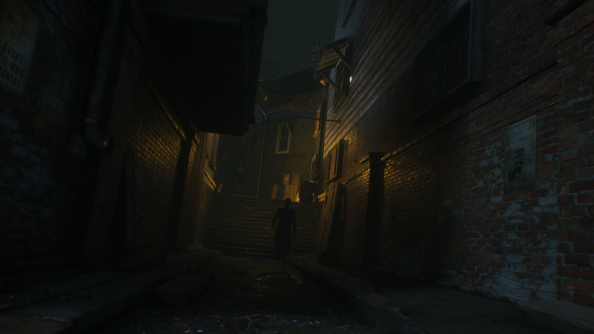
“The medical background of Jonathan Reid will allow him to regularly make hypotheses and research when it comes to identifying the origin of the Spanish Flu,” explains Beauverger. “It will also give him a better understanding of the creatures he’ll meet and fight. This will be done in the game through blood sample acquisition and analysis. It’s planned that, as a doctor, he will also be able – if the players wants it – to heal the citizens in order to protect them from the epidemic.”
It’s his penchant for investigating mysteries that also drives him to investigate people in an attempt to figure out if they deserve to die. But just like the quest to discover the origin of the pandemic, it’s a choice, and not the only way to play the game. It seems like it might be the most rewarding route, however. The chatting to the denizens of London, the exploration of the city’s districts, the hunt for the plague’s source – that’s what’s piqued my interest. Not unlike Life is Strange, the supernatural conceit seems like a catalyst for more human stories.
Vampyr will pop out of the coffin in 2017.
